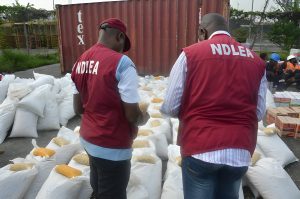Will Erdogan finally deliver on his vow to invade northern Syria? | CNN

Editor’s Note: A version of this story first appeared in CNN’s Meanwhile in the Middle East newsletter, a three-times-a-week look inside the region’s biggest stories. Sign up here.
Abu Dhabi, UAE
CNN
—
Turkish President Recep Tayyip Erdogan has in the past week launched a series of airstrikes against Kurdish militants in northern Syria, and has warned that a ground operation will soon follow.
The aerial operation that began on Sunday and his warnings three days later come after an explosion rocked Istanbul a week ago, killing at least six people and injuring more than 80 others. Turkish officials blamed Kurdish separatists for the explosion, a claim denied by Kurdish groups.
Erdogan said the strikes were “just the beginning” and that the Turkish Armed Forces “will topple the terrorists by land at the most convenient time.”
Earlier on Wednesday, the defense ministry claimed that 471 targets had been hit and that “254 terrorists have been neutralized” since the start of the assault, which has been dubbed “Operation Claw-Sword.” CNN can’t independently verify the number of casualties.
But Erdogan has been pledging an incursion into northern Syria since May. He had previously said that an invasion was meant to create a 30-km (20-mile) deep “safe zone” that would be emptied of fighters allied to the Kurdistan Workers’ Party (PKK), a militant group that Turkey and the US deem a terrorist organization.
Analysts have said that Erdogan had stopped short of acting on his vow to invade because he hadn’t secured a green light from Russian President Vladimir Putin, whose country has a large military presence in Syria.
But on Wednesday, senior Russian negotiator Alexander Lavrentyev said that Moscow has tried to convince Turkey to “refrain from conducting full-scale ground operations.”
The northern Syrian area targeted by Erdogan includes the three key towns of Manbij, Tel Rifaat and Kobani, which are under the control of the Kurdish-led Syrian Democratic Forces (SDF).
The SDF, backed by Washington, had been instrumental in the fight against ISIS since 2014. But its backbone is the Kurdish People’s Protection Units (YPG) militia, which Turkey considers a wing of the PKK and seeks to eliminate.
CNN asked Soner Cagaptay, director of the Turkish Research Program at The Washington Institute, how likely the Turkish leader is to follow through with his pledge this time.
Turkey has been saying that it will begin its next incursion for months. Are today’s claims any different or more serious?
I think that taking into consideration the previous Turkish incursions into northern Syria, this time, something doesn’t seem to be moving forward as fast. Typically, Turkish incursions follow one or two days of cross-border shelling by artillery and drone strikes, and then the military moves in. This time, the cross-border artillery shelling and drone strikes have been going on almost for a week, and [there has been] no [ground] action. So that means something is missing.
How do you see the Kremlin’s recent comments on a potential incursion? Do you see it as a green light?
Now usually, when Turkey goes into northern Syria, it needs to get a green light from two superpowers militarily present in Syria, that is the US and Russia.
But Russia is not aligned. I think Russia is wanting more before it green-lights a full-scale Turkish incursion. What Russia wants is for the Turkish government in Ankara to engage the Assad regime and to commit to ending the war, sort of in a global handshake. And of course, that kind of discussion will take days, if not weeks and months. So I think until we see that kind of discussion maturing and coming to a conclusion, Putin will not give his green light to a Turkish incursion.
Given the growing importance of Turkey to the West amid the Ukraine war, are Western states likely to turn a blind eye to an incursion?
The US has typically objected to Turkish incursions because they target the YPG. But the US has relied on the YPG to fight ISIS. So, it’s never happy when Turkey targets the YPG.
But this time, things are different. [Firstly], the big strategic picture is changing. Turkey’s importance [to] the US has shifted as US policy zooms out of the desert [Middle East], and focuses on the [Eurasian] steppe, or zooms out of Syria and into Ukraine.
So, the US view is that Turkey’s strategic importance has increased. That’s the long-term shift.
In the short term, there’s also a tactical view [in] Washington, which is that Turkey has objected to NATO’s Nordic expansion. I think Ankara has leveraged its hand well by raising objections to Sweden’s accession. And so right now, Washington really doesn’t want to irritate Turkey. And I think that applies to all key NATO allies.
Iran protests
Member states of the UN Human Rights Council on Thursday passed a resolution forming a fact-finding mission to probe Iran’s human rights violations during nationwide protests over the past months.
The motion was called for by Germany and Iceland, and passed after 25 countries voted in favor, six voted against and 16 abstained during a special session held in Geneva.
China attempted to remove the article forming the fact-finding mission by submitting an unexpected amendment to the resolution, a move that drew harsh criticism and collapsed after 25 countries voted against it.
Iran’s representative said the draft is “completely biased in nature and substance and does not reflect the facts and realities.”
Here’s the latest:
The Iranian government on Thursday set up a national committee to investigate deaths linked to the protest movement gripping the country, according to the deputy foreign minister.
United Nations High Commissioner for Human Rights Chief Volker Turk said on Thursday that Iran is in a “full-fledged human rights crisis.”
An Iranian fan holding a football jersey with the name of Mahsa Amini was confronted by security staff on Friday at Iran’s match against Wales in Qatar.
Footballer Voria Ghaffouri was arrested on charges of “dishonorable and insulting comportment towards Iran’s national soccer team as well as incitement against the regime,” according to state-aligned news agency Tasnim.
The digest
Netanyahu’s party signs deal with far-right Jewish Power party
Benjamin Netanyahu’s Likud party in Israel said Friday it had signed a coalition deal with Itamar Ben Gvir’s far right Jewish Power party – the first agreement between Likud and another party as Netanyahu works to build a government. Ben Gvir will take up the newly created position of Minister of National Security and his party will receive a number of other posts.
Background: Ben Gvir’s party, on a joint ticket with Religious Zionism, made major gains in November’s election, helping secure Netanyahu’s path to victory (the two parties have since split). Ben Gvir had been demanding the public security minister position for some time – claiming Israel has lost control in the face of a wave of Palestinian attacks targeting Israelis. He showed up to the site of Wednesday’s Jerusalem bomb blasts saying, “We need to back up our soldiers and our policemen, return to targeted killings (of Palestinian militants), rule the state of Israel, deter terrorism and charge a price for it.”
Why it matters: With this portfolio Ben Gvir will be in charge of police despite he himself having been in trouble with the law – convicted of anti-Arab racism and supporting terrorism. He’s also advocated a more permissive open-fire policy for police and soldiers to use against rioters throwing stones and incendiary devices. He also wants new legislation that would give police and soldiers immunity for crimes committed while on duty.
india and Gulf states to resume free trade talks covering food, energy security
India and the Gulf Cooperation Council (GCC) have agreed to resume talks on a free trade agreement, India’s Trade Minister Piyush Goyal said on Thursday, as his nation seeks closer ties with one of its largest trading partners, Reuters reported.
Background: These talks mark the third such attempt by India and the GCC to ink a trade pact, with negotiations previously held in 2006 and 2008. The GCC is a union of six countries in the Gulf region including Saudi Arabia, United Arab Emirates (UAE), Qatar, Kuwait, Oman and Bahrain.
Why it matters: The GCC is India’s largest trading partner, Goyal said, with bilateral merchandise trade in 2021-22 standing at $154 billion and services trade at $14 billion. The GCC contributes almost 35% of India’s oil imports and 70% of gas imports, he said, adding that bilateral talks will be held on a trade mechanism involving the Indian rupee and local Gulf currencies.
Cuban President meets with Erdogan during rare visit to Turkey
Cuban President Miguel Diaz-Canel met with his Turkish counterpart Tayyip Erdogan on Wednesday during a rare official visit to Turkey, Reuters reported. The two men held bilateral talks and signed cooperation agreements in several sectors and the Cuban leader underlined his country’s willingness to further improve relations with Ankara over energy, tourism and education.
Background: This is the first trip to Turkey by a Cuban leader in 27 years, according to Turkish media. Diaz-Canel recently began an international tour including Russia, Turkey, Algeria and China to seek economic support and cooperation in the energy sector.
Why it matters: The communist-run country is facing severe energy shortages and hours-long blackouts, seeking to bolster its grid with international aid. Cuba has been under a US economic embargo since 1962 after the communist revolution led by Castro.
World Cup
The Welsh Football Association (FAW) said the sport’s world governing body FIFA told the federation on Thursday that rainbow-colored flags and hats will be permitted in FIFA World Cup stadiums in Qatar.
A post on the FAW’s official Twitter account reads, “In response to the FAW, FIFA has confirmed that fans with Rainbow Wall bucket hats and rainbow flags will be allowed entry to the stadium for @Cymru’s match against Iran on Friday. All World Cup venues have been contacted and instructed to follow the agreed rules & regulations.
“The FAW urges FIFA to adhere to their message that everybody will be welcome in Qatar during the World Cup and continue to highlight any further human rights issues. We remain with the belief that football is for EVERYONE.”
Read more:
Lionel Messi fronts up to defeat as Saudi fans take over Doha after World Cup upset
Germany players cover mouths in protest against FIFA clampdown on free speech in ‘OneLove’ armband row
Iran beat 10-man Wales to keep World Cup qualification hopes alive
Tweet of the day
Journalist Zaid Benjamin tweeted a video on Thursday showing Qatar’s Emir Sheikh Tamim bin Hamad Al Thani jokingly asking Saudi Minister of Sports Prince Abdulaziz bin Turki Al Faisal how he slept the night before. The minister had earlier told CNN’s Becky Anderson in an interview that he was “waiting for someone to wake me up” following his country’s stunning World Cup victory over Argentina on Tuesday.
Watch Sheikh Tamim’s interaction with the Saudi minister here:
امير قطر يمازح وزير الرياضة السعودي قائلا “كيف النومة امس؟” بعد ان ابلغ وزير الرياضة السعودية قناة CNN في مقابلة “انتظر من يوقظني” من النوم في اشارة الى انه لا يصدق النتيجة “لقد كانت نتيجة لا تصدق وقد لعب الفريق بشكل جيد حقًا واستعدوا لمدة ثلاث سنوات لهذا اليوم” pic.twitter.com/bJfFOswspv— ZaidBenjamin زيد بنيامين (@ZaidBenjamin5) November 24, 2022
Watch Becky Anderson’s interview here.
Photo of the day







